NRL
A club for now & forever
Cronulla aren’t the richest club in the NRL. Far from it. But we’ve become one of the smartest.
The iron was hot this week and we struck.
Aaron Woods was available and we signed him. A Test and Origin player with plenty of football left in him. If he’d been on the open market, he would’ve cost a lot more than we paid to sign him. But Canterbury needed to create salary cap space and to do that they needed to move him on.
We had salary cap space. Astute management of the player roster put us in that position.
It was win-win for the club. We signed a high-quality player and the Bulldogs are going to have to keep paying some of his wage going forward.
To pick up someone like Woodsy, your club has to be attractive to the player.
He left the Tigers as a NSW and Australian representative and went to the Bulldogs thinking it was all going to be OK. It wasn’t. When it became clear they were prepared to let him go, he wanted to join a club where he could concentrate on his career, play semi-final footy and get back into reps after missing out on the State of Origin series this year.
We were that sort of club. He knew it.
Woodsy hasn’t been happy with how he played at the Bulldogs. I don’t think their style of footy suited him. He needs to get back to running hard. Less of the passing before the line and more of the tough grind.
Our style of play in the forwards is ruthless and gritty. We’ll rub off on him and he’ll play his best footy here.
THE BREEDING GROUND
If you’re a struggling club negotiating with a star player – and it’s clear to him that success is a long way off – you might still convince him to sign but you’re going to have to pay big overs.
Sometimes the most difficult way, but always the most satisfying, is to create your own players.
The Sharks have produced some great juniors over the years – Andrew Ettingshausen is an obvious one that comes to mind – but while plenty of players were still coming through, the production of genuine star players had slowed.
Something was missing and we had to fix it.
As a result, there’s a bit of a revolution going on with our junior development. The process started a couple of years before we won the premiership in 2016 and now it’s bearing fruit with more and more local juniors entering our top-30 squad.
You can’t rest on your laurels after winning one comp. Things change and if you don’t adjust, you get left behind.
This is going to be our foundation for success in the future.
Jayden Brailey, Blayke Brailey, Kyle Flanagan, Will Kennedy, Billy Magoulias, and Briton Nikora are all in our top-30 squad after coming through our revamped system. Isaac LumeLume and Bronson Xerri are pushing up behind them. Jack Williams is working on his game at Newtown.
Jayden’s obviously the best known because he’s been a regular first-grader since the start of last season, but we’ve got great faith in all of them.
And there are more to come.
Before, we had our junior rep teams and a few academy processes, but we needed to up the ante. It had to become more attractive to the kids and their parents.
We established academies in all the different age groups from under 14s upwards and in the age groups outside the junior rep teams we trained the players, organised games against other clubs and gave them exposure to what is involved in an NRL program.
Something was missing and we had to fix it. As a result, there’s a bit of a revolution going on with our junior development.
Our other coaches at the time – James Shepherd, Steve Price and John Morris – went out to the clinics and did the coaching. Andrew Gray, our physical performance manager, designed programs for the squads. We gave it a real professional feel.
It began to make a difference almost immediately.
In 2015, we won the Harold Matthews Cup (under 16s) and SG Ball (under 18s) competitions and took out the national championship, which was a first for the club.
Now we’ve got three types of academies – junior reps, which is under 16s, 18s and 20s; our elite academy, which is the best kids in every age group; and our participation academy, which is for anyone who’s playing junior league and wants to come along. We’ll provide the coaching for you.
You’ve got to realise that for every Andrew Ettingshausen there are others who have the potential to be as good but get distracted or lose interest in their mid-teens for whatever reason and become lost to the game.
And not everyone who becomes an established first-grader played junior rep footy.
Paul Gallen didn’t, but as he got older he got stronger and went on to play for NSW and Australia and win a grand final with us.
Everyone’s different. Some develop slower and we want to make sure those kids don’t fall out of the system because their potential isn’t recognised.
Our elite academy includes an average of five or six kids from every age group and they get regular strength and conditioning and skills session with our coaches. Nutrition, sleep, hydration – everything that matters to an NRL player is covered.
I’ve lived in the district for most of my life and I saw there was an enormous amount of young kids wanting to play rugby league better, but who didn’t have the structures in place to expose them to specialised coaching. Now we’ve got that.
There’s obviously a significant expense involved, but when I went to the club about it, I didn’t have to beg them for the money. They could see the value in it.
Supplying the coaches, trainers and physios and providing tracksuits, training gear and bags for hundreds of kids doesn’t come cheap, but the dividend is that these kids come into the NRL system through the Sharks.
If you’re producing your own quality juniors and they’re happy at the club we don’t have to pay them ridiculous amounts of money at the start, like you sometimes have to do if you’re chasing players from other clubs. They will earn good money soon enough.
It’s not all about winning the junior rep competitions, but that’s obviously important because it’s proof what we’re doing is working and we’re been very competitive again this year.
If you want to play rugby league, there’s definitely a pathway that exists for you at Cronulla.
COACHING A REGION, NOT A CLUB
I’m head coach of the Sharks but I don’t see my job stopping with the first grade squad.
I see my role as being head coach from top to bottom throughout the district, right down to grassroots.
There’s no point looking at it like that unless you’re going to make a genuine commitment. I don’t just coach 30 players. I’ve got to coach a club and a community.
Several years ago, I took the time to go to a lot of junior matches and talk to people. The recurring theme was a concern about a lack of pathways.
This year, myself and my staff at the Sharks took it up another notch.
There are 14 junior clubs in the Cronulla-Sutherland district and 10 of them have teams in under-13s competitions.
I’ve been going out to one of these clubs every week for a training session with their under-13 side. The ones that don’t have under-13s, I work with the nearest age group to that.
I’ll admit when I first started doing it I thought, ‘What have I got myself into’ – I already had a pretty full schedule as it was – but I’ve got to say I’ve enjoyed it immensely. The fun the kids have takes you back and gives you a different slant on things.
The message from me is that I’m not going out there to take over and change everything they do. I basically act as the assistant coach and jump in and help. If the coach wants to redesign things a bit I’ll assist with that, as well as provide a bit of specialised coaching for an individual player or two.
I have a bit of a Q&A session with the kids at the start. They love to find out things about the Sharks – who’s the fastest, the strongest – and I’ll ask them who’s their favourite player. It used to be Gal, but now it’s Valentine Holmes.
We invite the coaches to our own training sessions at the Sharks and do a bit of coach the coaches as well.
My assistants – Jimmy Dymock and John Morris – run the sessions, teaching offensive and defensive drills. We had about 50 coaches turn up to one last year.
It’s not a battle between footy and the beach for talented kids here. That’s still basically a winter and summer thing and it’s actually good because if they’re active in the surf and competing for surf clubs it keeps them fit.
It’s a battle between footy and all the other things kids have to do these days. Back when I was a kid it was rugby league and soccer, but now there’s AFL, martial arts is massive, basketball’s big, and of course all the technology that kids love.
That’s why you’ve got to go flat out to compete and make rugby league as attractive as possible as an option.

THE FUTURE
I see myself coaching for another 10 or 12 years. Maybe 15 if things are going well.
I’m 52 and coaches like Craig Bellamy and Wayne Bennett have shown you can go a lot longer than that and continue to be successful if you have the right attitude and maintain your commitment.
You have to be capable of reinventing yourself and freshening your approach.
I took over at Cronulla towards the end of the 2010 season and I’ve had some players here under my control for a long time now. Gal’s been at the club for 18 years.
So to come in and give them the same spiel day after day, week after week is going to stop working at some point. You have to find different ways to keep challenging the players. I’ve concentrated on doing that.
You need good staff around you as well to help come up with new ideas and techniques.
It’s a challenge, but I love it.
We’ve had to rebuild in recent years and we haven’t had the money and resources some other clubs have, but I’m not one to look at the richer clubs and say, ‘I wish we had that’. I concentrate on us using what we’ve got to the best of our ability.
The satisfaction I get from doing the job is what makes me get out of bed and go to work every day. Winning is the cream on top. You never forget how great it feels on grand final night if you’re holding the trophy and looking at the smiles on your players’ faces.
If you’d asked me when I first started coaching, ‘If you were guaranteed to win a comp, would you give it away after that?’, I would’ve said yes.
But when you do win one it feels so good, you get a bit greedy.
I want to win more.
More about: Canterbury Bulldogs | Cronulla Sharks | Grand Final | Paul Gallen | State of Origin | Wayne Bennett
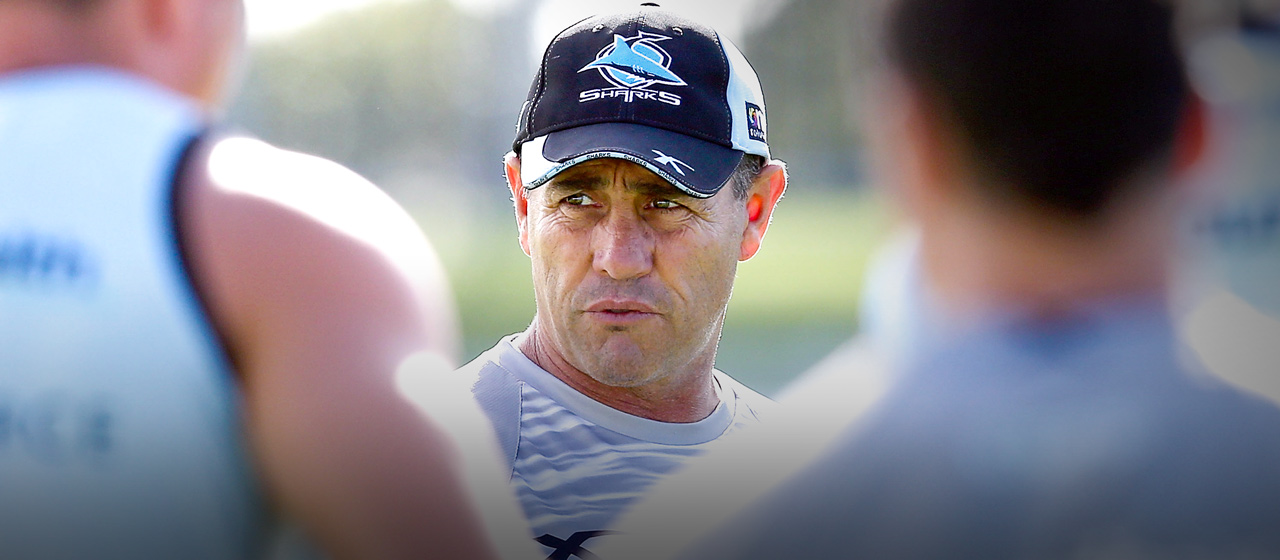
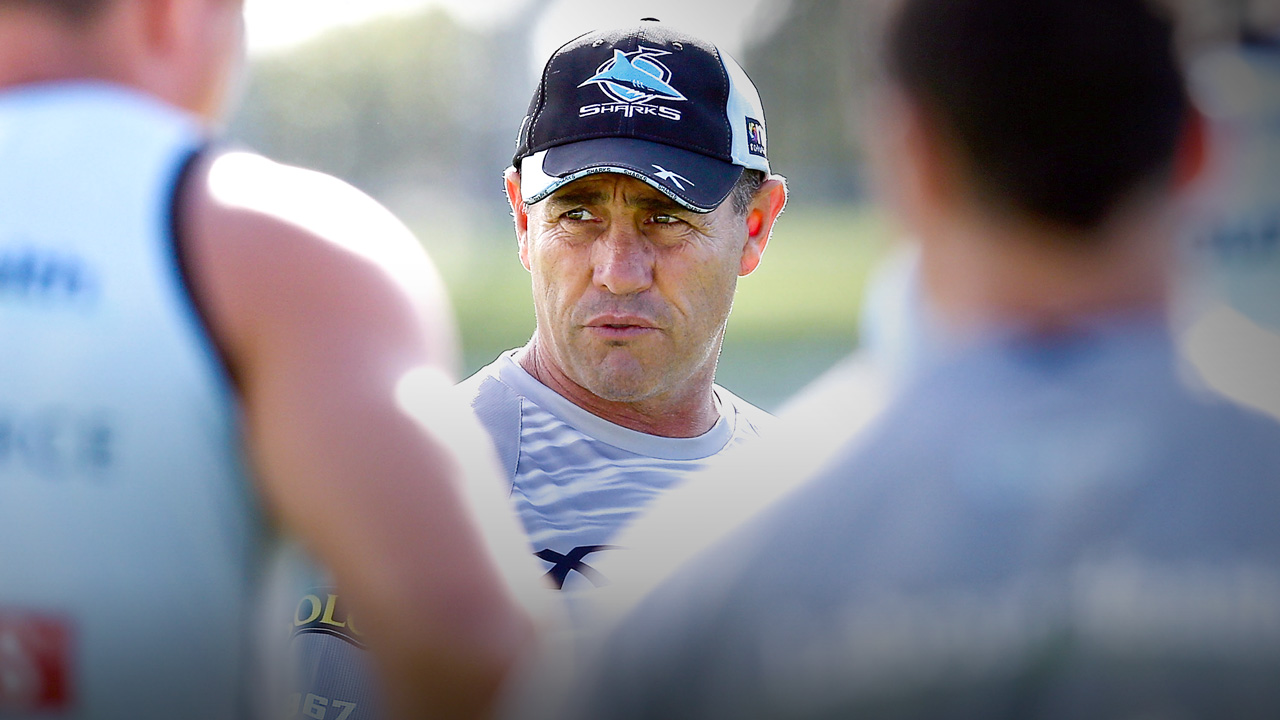

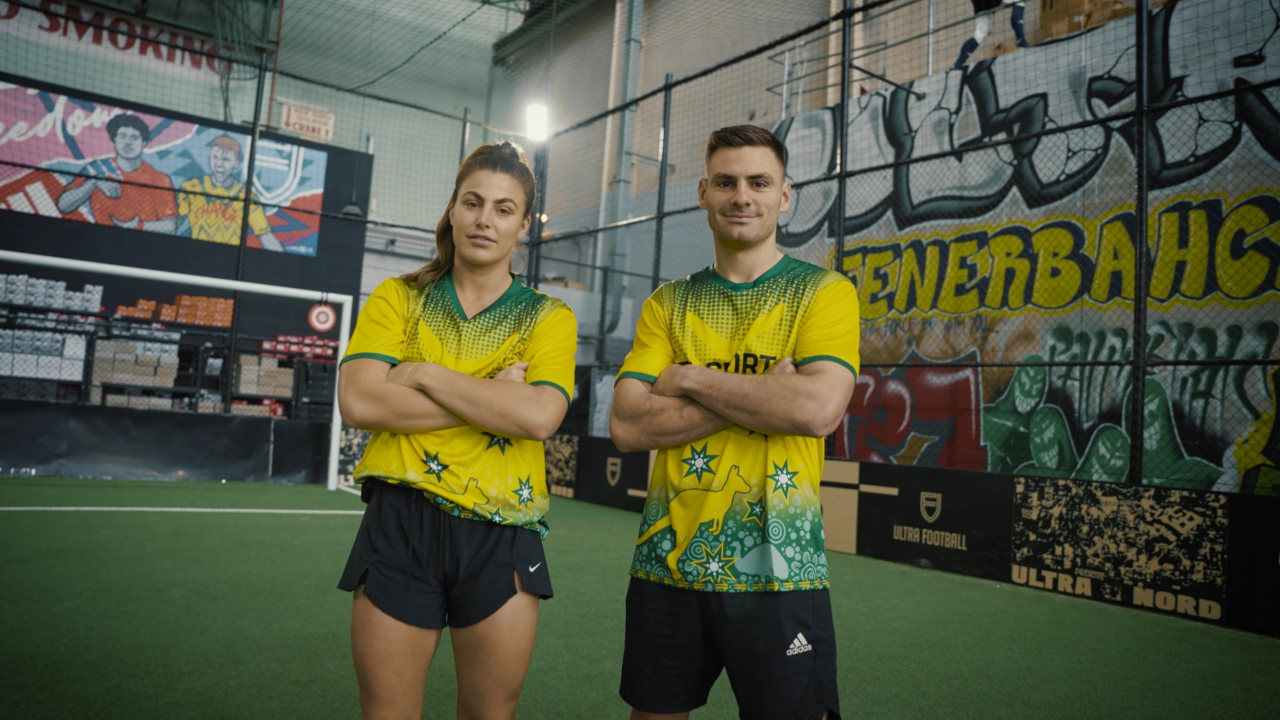
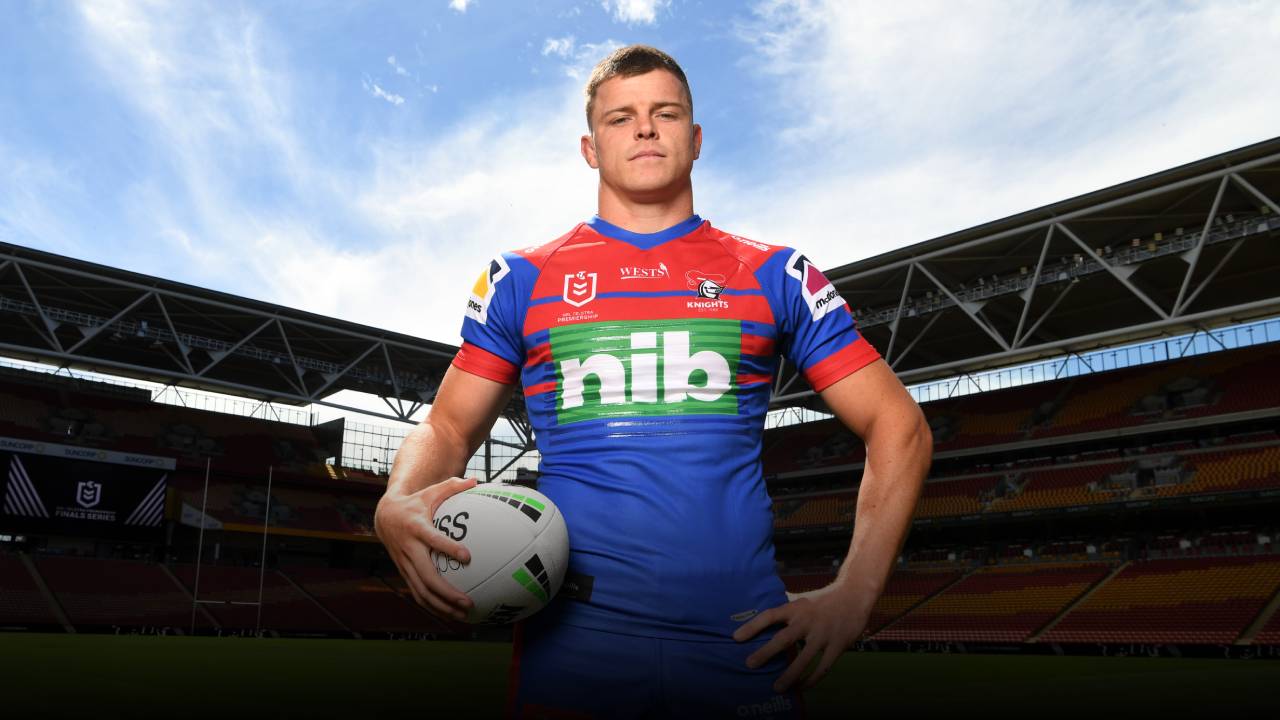
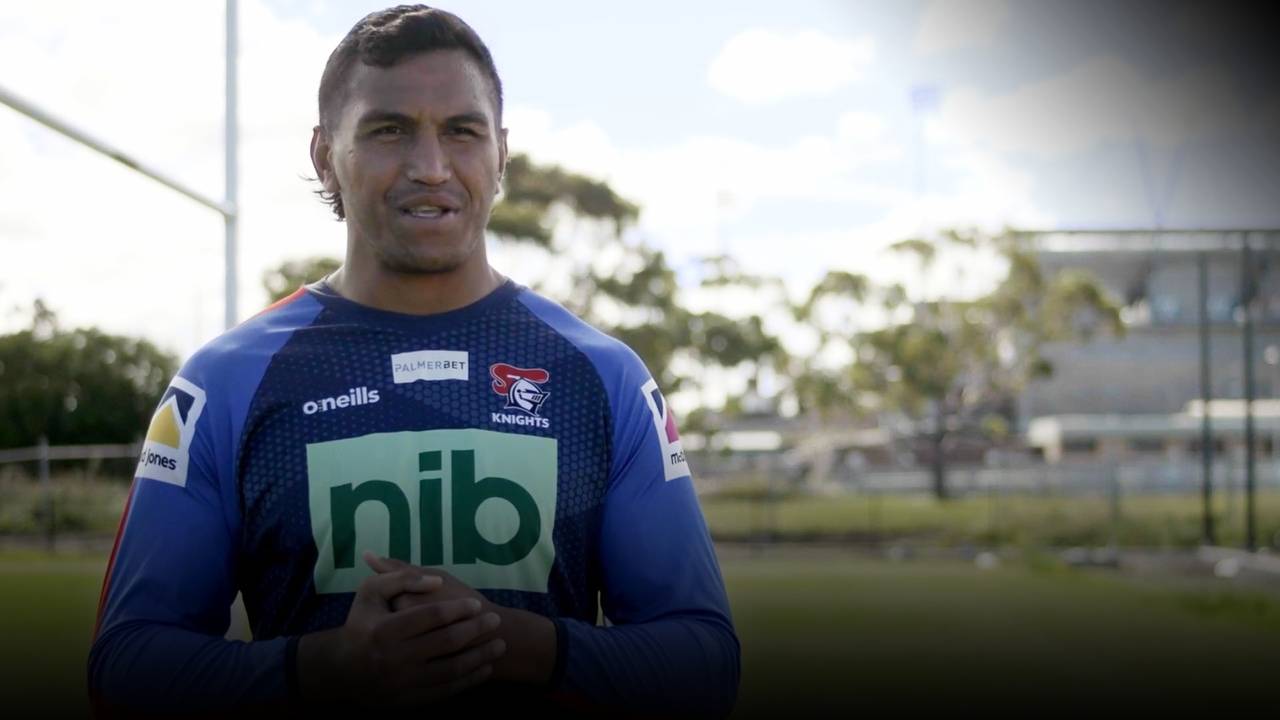
 Load More
Load More